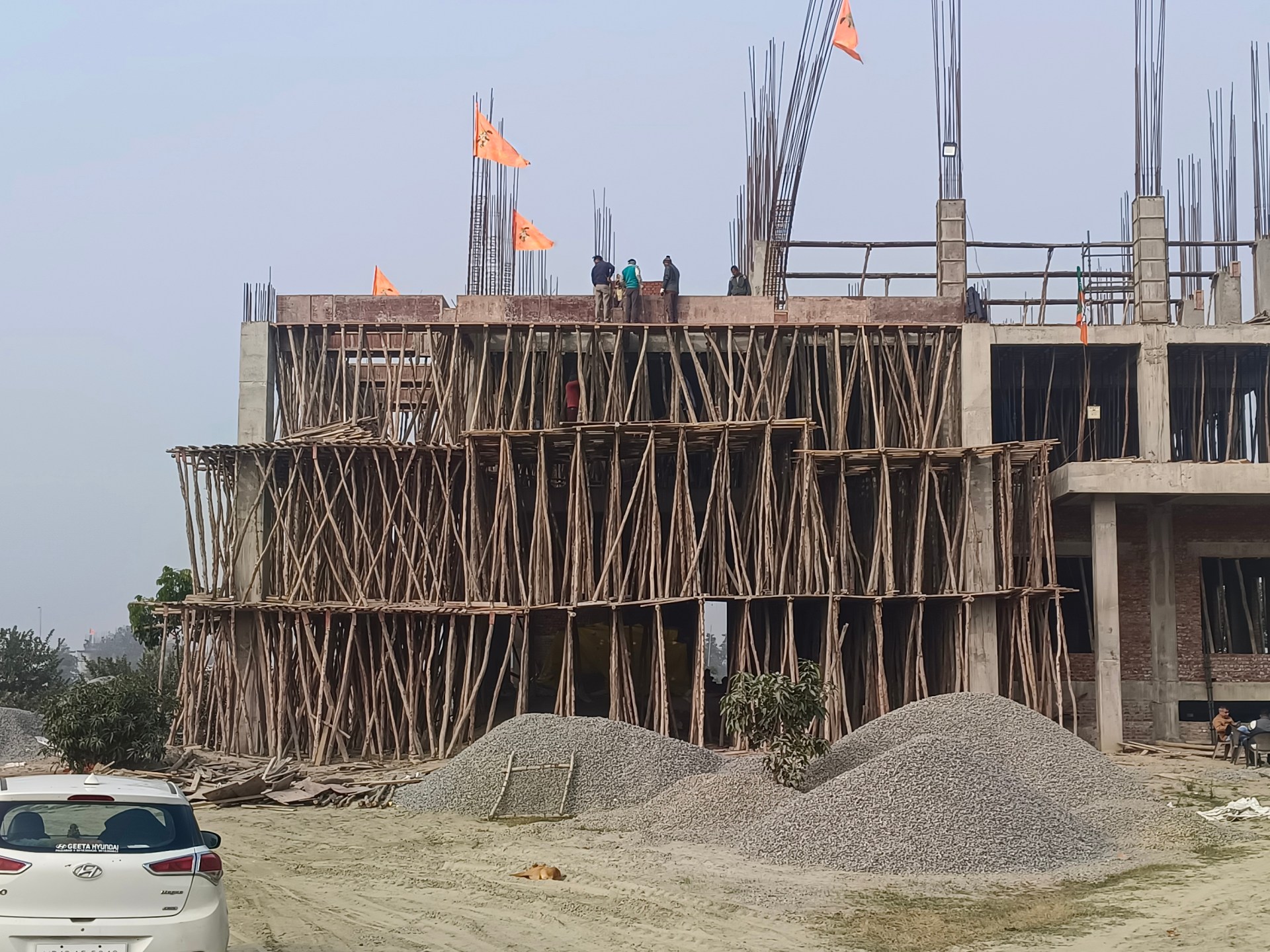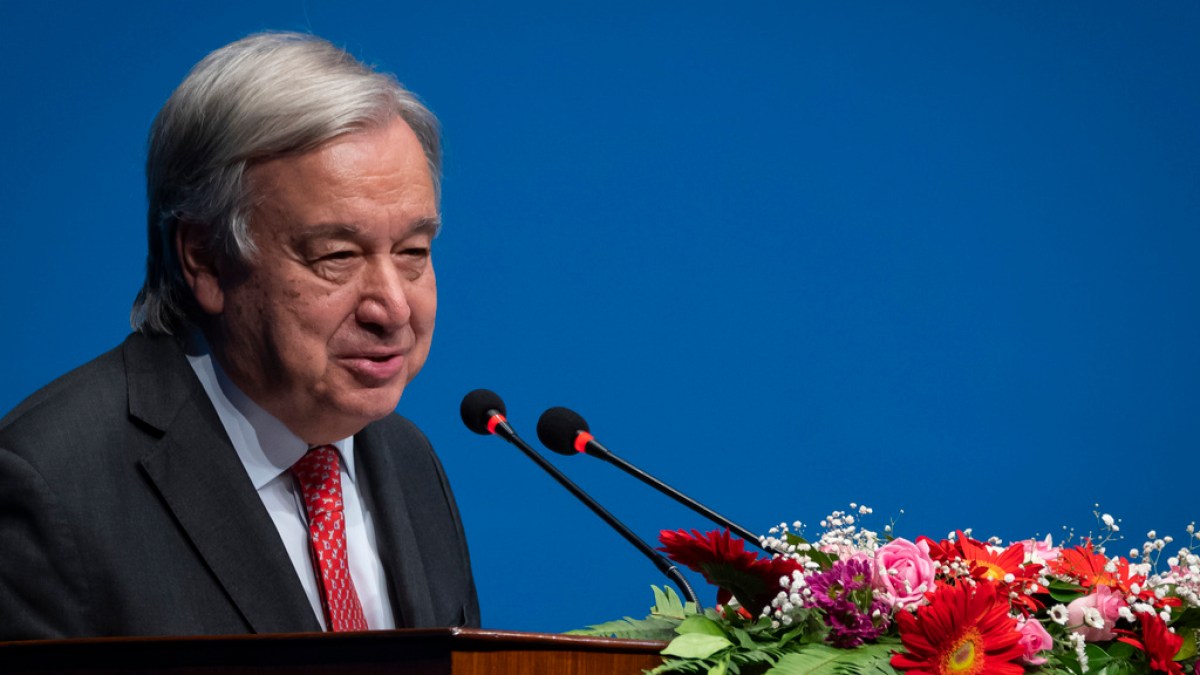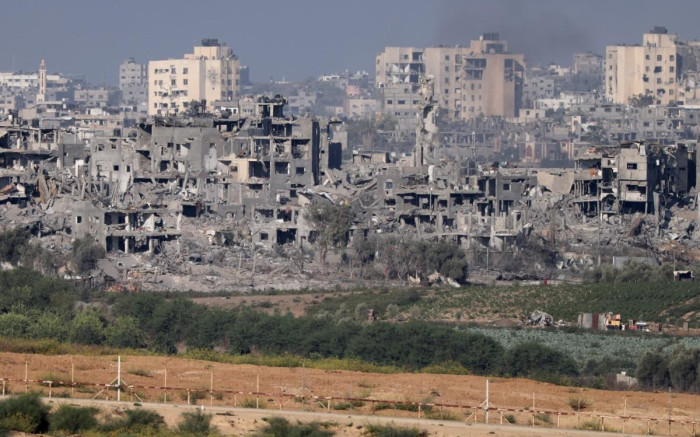
Tens of thousands of displaced Palestinians in Gaza were forced to flee south again after Israel intensified attacks in the center of the besieged enclave over the past 24 hours, killing more than 180 people.
The Israeli army said in a post on Friday
An Israeli shelling near El-Amal Hospital in Khan Younis has killed 41 people in the past two days, the Palestinian Red Crescent Society (PRCS) said on Thursday, adding that the victims of repeated Israeli attacks There were also “displaced people seeking protection” near the facility.
The U.N. humanitarian office said an estimated 100,000 more displaced people had arrived in the already crowded southern border town of Rafah in recent days after fighting intensified around Deir el-Balah in central Gaza and Khan Younis in the south .
Earlier this week, Israeli forces ordered Palestinians to leave the crowded central districts of Bureij, Maghazi and Nuseirat as tanks advanced from the north and east.
Attacks on these areas have increased in recent days, and many residents have fled to already crowded Deir el-Balah, setting up makeshift tents made of plastic sheeting in any open space they could find.
“We suffered a lot. We were homeless all night, in the rain and it was cold, we were with our children and elderly women,” Um Hamdi, a woman cooking porridge over an open wood fire surrounded by children, told Reuters.
Nearby, gray-bearded Abdel Nasser Awadallah stood in a wooden frame that was about to be wrapped in plastic to make a tent and spoke of the family he had lost.
“I buried my children, one child was 16 years old, another was 18 years old. What I really can’t believe is that I buried my children at 6:00 a.m. when their bodies were still warm. My nephew was also two years old, I buried him, I buried my wife,” he said.
“Death or Expulsion”
Palestinian U.N. envoy Majed Bamya told the U.N. Security Council on Friday that the widespread destruction of Gaza by Israeli operations made it clear that their only goal was forced relocation.
“They want to ensure that Palestinians in Gaza no longer have homes to return to,” he said. “They want to make sure they don’t have a life left to give back.”
“They want to ensure that life in Gaza is no longer possible, with the one goal of what they call ‘voluntary migration’… the code name for forced displacement.” “These are the options for the Palestinians: destruction or expulsion, death or expulsion “, he said.
On Christmas Eve, the Maghazi refugee camp witnessed this one of the deadliest attacks since Israel launched its military offensive on October 7th. While the official number of those killed is 90, residents of the camp near Deir el-Balah said Al Jazeera that the number is actually much higher, with entire blocks of flats destroyed.
Israel issued one rare excuse on Thursday for the killing of civilians in the massive airstrike that sparked one of the largest refugee movements of the war so far, saying the ammunition used was not suitable for an overcrowded refugee camp and that the high death toll “could have been avoided.”
Rafah hit out ahead of the Egypt talks
According to the United Nations, more than 90 percent of Gaza’s 2.3 million people have been displaced, and many are on the move for the third or fourth time.
Many now live in cramped quarters across the 365 square kilometer country or in makeshift tents around the southern city of Rafah on the border with Egypt – which is also not immune to Israeli attacks.
Rafah was hit by fresh airstrikes on Friday as Egypt prepared to host a high-level Hamas delegation for talks aimed at ending the nearly 12-week war that has devastated the besieged Palestinian territory.
Reuters journalists saw the head of a buried toddler sticking out of the rubble at the site of an airstrike that destroyed a building in Rafah.
The child screamed as one rescue worker shielded his head with one hand while another swung a chisel with a sledgehammer and tried to break open a concrete slab to free him.
Neighbor Sanad Abu Tabet said the two-story house was full of displaced people. As morning broke, relatives came to collect the dead, wrapped in white shrouds.
Israel’s relentless airstrikes and ground attacks on Gaza have killed at least 21,507 people, mostly women and children, according to Gaza’s Health Ministry.
Egypt has taken a leading role in calling for a ceasefire, including putting forward a plan to end the fighting. This includes the prisoner and detainee exchange between Israel and Hamas.
Dia Rashwan, head of Egypt’s state information service, said the plan was “intended to bring together the views of all concerned parties, with the aim of putting an end to the Palestinian bloodshed.”
Senior Hamas official Osama Hamdan said Thursday that the group would not release any more Israeli prisoners without “completely and completely ceasing aggressive activities against our people through negotiations that are consistent with the interests of our people.”
#Gaza – Israeli soldiers fired on an aid convoy returning from the northern Gaza Strip on a route set by the Israeli army – our international convoy leader and his team were not injured, but a vehicle was damaged – aid workers should never be targeted.@UNRWA
– Thomas White (@TomWhiteGaza) December 29, 2023
UN convoy comes under fire
The director of the UN Agency for Palestine Refugees in Gaza (UNRWA), Thomas White, said on Friday that a UN aid convoy came under fire from the Israeli military on Thursday. Although there were no casualties, White condemned the attack on humanitarian workers.
“Essentially we are delivering aid under fire,” White told Al Jazeera, explaining that the incident occurred as a convoy was returning from the northern Gaza Strip on a route set by the Israeli army.
“They took that route, encountered some tanks and those tanks fired heavy machine guns at the vehicles,” White said, adding that while there was some damage to one of the vehicles, UNRWA staff were not injured.
Philippe Lazzarini, the head of UNRWA, criticized Israeli forces on Friday for firing on the aid convoy. In a post on
A “total siege” imposed by Israel since the war began on October 7 and after years of a crippling blockade has deprived Palestinians in Gaza of food, water, fuel and medicine.
The serious bottlenecks were only sporadically relieved by humanitarian aid convoys, arriving mainly via Egypt.
International bodies say supplies allowed in through Israeli inspections represent only a small fraction of the enclave’s enormous needs. Last week, Israel bowed to international pressure and opened a second border crossing that it said would double the number of daily supply trucks to 200. But only 76 were able to enter on Thursday, compared to 500 before the war, according to the United Nations.
A United Nations-backed report came out last week warned that Gaza’s entire population of 2.3 million is facing crisis famine and 576,600 people are living in a catastrophic or starvation situation.
U.N. humanitarian chief Martin Griffiths described on social media what he called “an impossible situation for the people of Gaza and for those trying to help them.”
“Do you think it’s easy to bring aid to Gaza? Think again,” he wrote on X on Friday.






Recent Comments